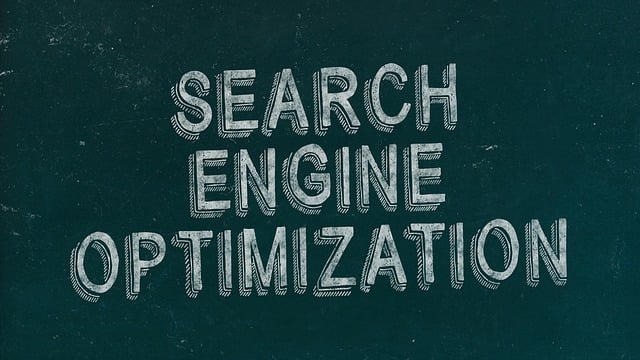AI-powered search is revolutionizing information access by understanding user intent and delivering personalized, relevant results faster than ever before. This technology enhances efficiency in business intelligence, research, and everyday online activities, saving users time and effort. Integrating AI into search engines offers strategic benefits for businesses through improved online visibility, user engagement, and targeted advertising. Advanced algorithms, robust data indexing, NLP, and voice search are driving the future of AI-powered search, making it an indispensable knowledge tool accessible in new ways.
In today’s digital age, search intelligence is revolutionizing how we interact with information. As AI continues to advance, its impact on search capabilities is profound, transforming user experiences and driving business strategies. This article delves into the concept of ai-powered search, exploring its potential to enhance efficiency, personalization, and discovery. From understanding core principles to examining future trends, we uncover the key components and transformative effects shaping the evolution of search intelligence.
- Understanding Search Intelligence: Unlocking the Power of AI-Powered Search
- The Rise of AI in Search: Transforming User Experiences and Business Strategies
- Key Components of Effective AI-Powered Search Systems
- Future Prospects: Trends Shaping the Evolution of Search Intelligence
Understanding Search Intelligence: Unlocking the Power of AI-Powered Search

Search intelligence, powered by artificial intelligence, is transforming the way we interact with information. By leveraging AI-powered search, organizations and individuals can unlock a new level of insights and efficiency. Traditional search methods often rely on keyword matching, but AI brings advanced capabilities like natural language understanding, contextual awareness, and machine learning algorithms. These innovations enable searches to be more precise, relevant, and predictive.
AI-powered search interprets user intent, understands the nuances of language, and delivers results that go beyond simple keywords. It can analyze vast amounts of data, learn from user behavior, and adapt over time to provide personalized experiences. This technology is not just a game-changer for information retrieval; it empowers users to make informed decisions faster, driving better outcomes in various fields such as business intelligence, research, and everyday online activities.
The Rise of AI in Search: Transforming User Experiences and Business Strategies

The integration of artificial intelligence (AI) into search engines has marked a significant shift in how users interact with information. AI-powered search technologies are revolutionizing user experiences by offering more personalized, contextual, and intuitive results. These advanced systems can understand natural language queries, interpret user intent, and provide relevant suggestions or answers instantly. This level of sophistication enables users to save time and effort while accessing the vast amounts of data available online.
For businesses, the rise of AI in search presents a unique opportunity to adapt and innovate their digital strategies. By leveraging AI-powered search capabilities, companies can enhance their online visibility and user engagement. Intelligent search algorithms can analyze user behavior patterns, preferences, and demographics to deliver tailored content, product recommendations, or targeted advertising. This data-driven approach allows businesses to refine their marketing efforts, improve conversion rates, and foster stronger connections with their audiences in today’s competitive digital landscape.
Key Components of Effective AI-Powered Search Systems

The effectiveness of an ai-powered search system hinges on several key components. Firstly, sophisticated algorithms play a crucial role in processing and understanding user queries, enabling the system to deliver relevant results swiftly. These algorithms must be adept at natural language processing (NLP), capturing the nuances and intent behind user inputs to provide accurate answers or suggest pertinent resources.
Moreover, robust data indexing and storage are essential. An efficient ai-powered search system requires a comprehensive index of all available information assets, from documents to multimedia content. This enables quick retrieval and presentation of relevant data based on user queries. Advanced data structures and intelligent indexing techniques ensure that the search process remains dynamic and adaptable to new or updated information.
Future Prospects: Trends Shaping the Evolution of Search Intelligence

The future of search intelligence is poised for significant transformation, driven by advancements in artificial intelligence (AI) and machine learning. As technology evolves, AI-powered search tools are becoming increasingly sophisticated, capable of understanding complex queries and delivering more accurate, contextually relevant results. One prominent trend is the integration of natural language processing (NLP), enabling seamless interactions between users and search engines, much like conversing with a knowledgeable friend. This shift promises to enhance user experiences, making information retrieval faster and more intuitive.
Furthermore, personalized search experiences are expected to gain traction, leveraging AI algorithms to tailor results based on individual preferences and behaviors. This evolution will not only cater to diverse user needs but also foster greater engagement and trust in search platforms. In addition, the integration of voice search technology, powered by AI, is set to redefine how we interact with information, making search more accessible and hands-free. These trends collectively point towards a future where search intelligence becomes an indispensable tool, shaping how individuals discover, understand, and interact with knowledge.
Search intelligence, driven by AI-powered search systems, is revolutionizing how we interact with information and shaping business strategies. As we’ve explored, understanding, and leveraging these key components offer immense potential for enhancing user experiences. Looking ahead, the future of search is filled with exciting trends that promise to further transform digital landscapes, making access to knowledge faster, more accurate, and tailored to individual needs. Embracing these advancements is crucial for businesses aiming to stay competitive in today’s digital era.
